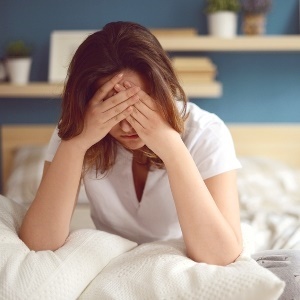
With celebrities like Mel Gibson and Emma Thompson opening up about their mental illnesses, it has become more acceptable to seek professional help when you suffer from mental problems.
But there’s still a stigma attached to seeking help and according to The South African Depression and Anxiety Group (SADAG) 22 people commit suicide every day and at least 220 people attempt suicide.
Read: Two thirds of depressed teens may benefit from therapy
With these alarming statistics it’s important to know when you should consult a professional. We often forge ahead and suffer in silence, but when should you consult a psychologist, a psychiatrist or even your general practitioner? And when do you just need to acquire the skills to manage your stress levels?
Depression reason for concern
If someone has been feeling depressed for two or more weeks, we would recommend that they seek help, says Tamara Zanella, a counseling psychologist.
“This could indicate depression as opposed to typical feelings of being down, which tend to resolve themselves,” she told Health24.
Other possible indicators include:
- Losing interest in pleasurable activities
- Thoughts or self-harm or suicide
- Struggling with sleep, but finding it difficult to get out of bed
“A major indicator in any of the above problems is when it starts to have a negative impact on someone's social or emotional wellbeing, where it might affect work and/or personal relationships.”
Read: SA women depressed over early hair loss
According to Tamara a lot of people start to self-medicate with alcohol or substances (whether prescription or illicit) in order to feel better.
When it comes to stress, there are a number of types of stress, some of which can be healthy. “When stress is unhealthy, where we feel that the demands placed on us outweigh the resources that we have available to deal with it, help might be needed.”
If this continues for long periods without a sense that things can change or improve, there is a risk that this can lead to burnout and potentially depression. “It is important that people are able to identify the type of stress that they are experiencing and ask for help or additional resources if it feels that it is becoming problematic.”
Is the GP a first point of call?
“Many people do not know a psychologist, so their GP is a good first option in order to try to find the right type of help,” says Tamara.
“If they do go to their GP they may be prescribed medication, but it would also be important to discuss seeing a psychologist and to ask for referrals. Alternatively, someone can make contact with a psychologist as a first stop and if the psychologist feels they would benefit from medication, they would likely recommend that they see a psychiatrist or their GP for a review.”
Medication as immediate relief
Tamara says if a person is struggling to function in their day-to-day lives they might benefit from seeing a psychiatrist immediately in order to get medication that can help them to function.
“Many people might not feel that they need medication or they may not want to take medication, but it can still be helpful to see a psychiatrist for diagnostic purposes. They may also be able to alleviate fears about taking medication, and they would be able to recommend a psychologist."
Read more:
‘I have a Black Dog – his name is depression’




 Publications
Publications
 Partners
Partners











